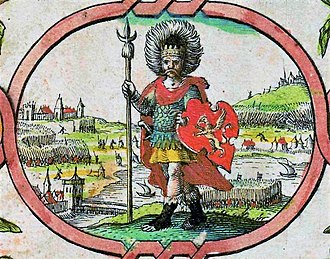Wessex Last Name Origin, History, and Meaning
Where did the surname Wessex come from? What does the surname Wessex mean? Discover the history and meaning of the last name Wessex and family migration on YourRoots Map.
Surname Wessex Origin: What does the last name Wessex mean?
The surname Wessex originates from Germany in the early 5th century, according to YourRoots data. It has been closely associated with England from the 6th to the 10th century, with records also showing Wessex family presence in countries like Germany, indicating a global spread over the centuries. By the 20th century, the Wessex surname had significantly grown in records in England and remains prominent in the country, appearing in many other countries as well, including Germany.
While the exact meaning of the Wessex surname is not explicitly provided, its historical association with the Kingdom of Wessex in England suggests a connection to the region and its Anglo-Saxon history. The name Wessex has a strong heritage rooted in England and has spread globally over the years. YourRoots data indicates the surname's presence in various countries worldwide, showcasing its enduring legacy and widespread use across different regions and cultures.
Wessex Last Name History: Where did the last name Wessex come from?
Origin of Wessex Surname: Where does the last name Wessex originate from?
According to YourRoots data, the surname Wessex first appeared in records from Germany around the early 5th century. Please note that this reflects only YourRoots data for the exact Wessex spelling and does not include other record sources or surname variations.
History of the Last Name Wessex: What does the Wessex surname history look like in the early days?
The Wessex surname remained closely associated with England from the 6th to the 10th century. YourRoots data also shows Wessex family records in countries like Germany, indicating global spread over the centuries.
Global Spread: Where can we find the Wessex surname today?
By the 20th century, the volume of records with the Wessex surname grew significantly in England. The Wessex surname remains prominent in England. It appears in many countries, including Germany.
Explore Wessex last name heritage and Wessex surname origin based on YourRoots Map data
 VIEW THE ORIGIN OF SURNAME WESSEX
VIEW THE ORIGIN OF SURNAME WESSEXFamous People With Wessex Surame?

Ecgberht, King of Wessex
Ecgberht (770/775 – 839), also known as Egbert, was the King of Wessex from 802 to 839. He played a crucial role in maintaining the independence of Wessex against Mercia and expanding his kingdom's control over southeastern England. Ecgberht's descendants ruled Wessex and eventually all of England until 1013. While his ancestry is debated, his reign marked a significant period in Anglo-Saxon history. Ecgberht's strategic victories and political prowess solidified his legacy as a powerful ruler in early medieval England.

House of Wessex
The House of Wessex, also known as the House of Cerdic, was a prominent family that ruled Wessex in Southern England from the early 6th century. Famous members include Alfred the Great, who saved England from Viking conquest, and his grandson Æthelstan, the first king of England. The house faced challenges from Danish invasions but continued to influence English politics for centuries. Their lineage has had a lasting impact on the monarchy, with all English kings since William II being descended from the House of Wessex. Their legacy is a key part of English history and royal lineage.

Godwin, Earl of Wessex
Godwin of Wessex (died April 15, 1053) was a powerful Anglo-Saxon nobleman who rose to prominence under King Cnut the Great in England. He became the first Earl of Wessex and father to King Harold II and Edith of Wessex. Godwin played a significant role in the political landscape of England during the early 11th century, supporting different kings and influencing royal decisions. His life was filled with conflicts, exile, and eventual restoration to power, leaving a lasting legacy in English history.

Cerdic of Wessex
Cerdic of Wessex (c. 467 – 534) was the legendary founder and first king of Wessex, an Anglo-Saxon kingdom in Britain. Despite his disputed origins, Cerdic is credited with establishing a dynasty that ruled Wessex for centuries. His conquests against Brittonic kings and consolidation of power shaped the early history of the region. While his existence is debated, Cerdic's legacy as a key figure in the Anglo-Saxon settlement of Britain endures in historical accounts and cultural representations.

Ine of Wessex
Ine of Wessex (died in or after 726) was a King of Wessex from 689 to 726 who ruled over much of southern England. Known for his code of laws and Christian convictions, Ine expanded Wessex's territory in the western peninsula. He increased trade and promoted the town of Hamwic (now Southampton). Ine's reign saw advancements in Wessex's minting of coins and territorial control. He abdicated in 726 to go to Rome, leaving the kingdom to "younger men." Ine's genealogy traces back to the royal line of the Gewisse tribe, showcasing his royal heritage and legacy in Anglo-Saxon history.
All images displayed on this page are sourced from Wikipedia or Wikimedia Commons.We use these images under their respective Creative Commons or public domain licenses. Wherever applicable, author attributions and license information are provided. If you believe an image is used incorrectly or outside its license terms, please contact us so that we can review and correct the issue.




.png)